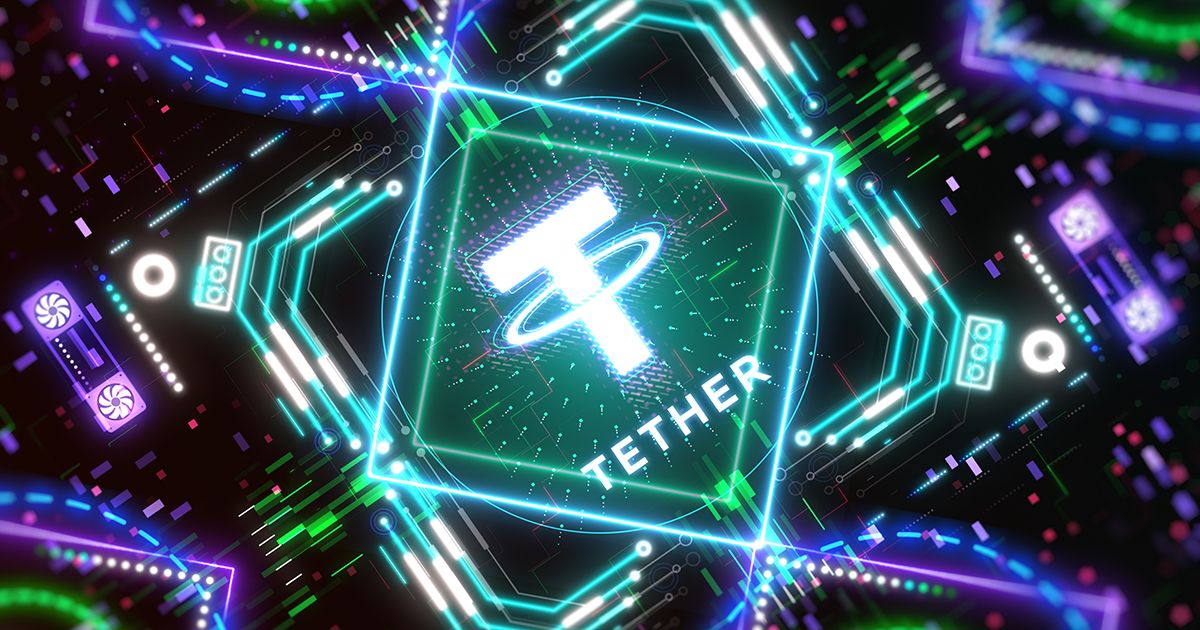USD Stablecoin Untethered?

Disclaimer: Your capital is at risk. This is not investment advice.
A conversation with Money Week editor, John Stepek
This week, Charlie Morris chats with Money Week’s Chief Editor, John Stepek, about the USD-backed stablecoin, Tether (USDT), the role it has in the digital asset market and the controversy over its bank reserves.
John Stepek, editor of Money Week writes:
Hi Charlie,
Hope all’s well, enjoyed the podcast the other day! Merryn and I were wondering about this Tether stuff. I’ve noticed a few people on Twitter talking about it, though that doesn’t necessarily mean anything. Do you think there’s anything to it? Just wanted to get your expert view in case I need to sell my massive stash of 0.05 BTC? this explains it quite well I think.
Charlie from ByteTree replies to John Stepek; cc Merryn-Somerset-Webb
Hi John,
That story has done the rounds. Tether is unlikely to be a fraud given the accusations over such a long period of time. But then again, I can’t be sure. Recall Madoff etc. I get the impression that most of the space back Tether. The doubters tend to be no coiners or new to the space.
That article you posted is questionable as there must be a motive. No one buys in March 2020, almost accidentally, because they sensed inflation. That would have been an expert trade, one worthy of ByteTree or the Fleet Street Letter, which actually did buy in March, when it was massively against the grain. I know serious people in the space who had written Bitcoin off at the time and bought EasyJet shares instead. The piece is also too well written for most Bitcoiners, and whoever did it clearly had a great deal of knowledge.
Tether’s supply should rise and fall as is normal in flow analysis and for that matter, banking in general. Here is an interview with Tether staff/council to counter. Tether bashing has been going on for ages so is certainly not new. I just wish they had a proper audit process, which they don’t seem to. A counter interview by Peter McCormack and two folks from Tether here.
Charlie
John Stepek replies; cc Merryn-Somerset-Webb
Yes, thanks Charlie – and I must admit I’ve never understood the point of Tether - why have a crypto version of the dollar? This Matt Levine piece(mentioned in the other piece) is pretty good in terms of explaining the initial Tether controversy.
Merryn-Somerset-Webb replies; cc John Stepek
Thanks Charlie. I still don’t understand what makes a tether worth a dollar. Who has the dollar?
Charlie from ByteTree replies to John Stepek & Merryn-Somerset-Webb
Tether exists because most banks block dollar to and from crypto exchanges and have done for years. Those that deal with Bitcoin take several days to transfer funds. If you want to arbitrage across exchanges, you need to be quick. Tether solves this as it is a crypto dollar that is free to travel just like Bitcoin. This is important for the space, as without “stable coins”, the space would go back to the stone age in terms of liquidity. The main Tether question is the integrity of the reserves. The other criticisms are minor in comparison.
Merryn-Somerset-Webb replies; cc John Stepek
Tether would disappear if crypto became mainstream?
Charlie from ByteTree replies to John Stepek & Merryn-Somerset-Webb
When governments launch central bank digital currencies (CBDC), then private stable coins will likely coexist. I can put government bonds into a fund and sell them. Is that bad? Maybe CBDC comes with heavy regulations etc. Who knows? But this line of thinking is where the conversations need to be going.
John Stepek replies; cc Merryn-Somerset-Webb
OK, so Tether is an intermediary you can use to quickly trade coins, but you need to have confidence that it’s explicitly worth $1? And it is required because regulation around crypto exchanges is so ropey?
Charlie from ByteTree replies to John Stepek & Merryn-Somerset-Webb
Yes. Would you mind if I publish this thread in my ByteTree commentary today? It is on message.
John Stepek replies; cc Merryn-Somerset-Webb
Yes, asking stupid questions is technically our job, but please take out the typos :)
Merryn-Somerset-Webb replies; cc John Stepek
So long as you make it look like John and I are asking intelligent questions.
Charlie from ByteTree replies to John Stepek & Merryn-Somerset-Webb
Trust me.
ByteBox - Questions from our readers
I appreciate you and your colleagues are Bitcoiners through and through but occasionally Ethereum and ether are mentioned in your articles and The Headlines but rarely in any detail or with any enthusiasm that you hold for BTC. My question is:
Do you believe Ethereum will be a game-changer regarding smart contracts or do you believe Bitcoin will be, in time (or already is?), capable of doing exactly what ether tokens/blockchains etc., are designed to do?
Charlie Morris writes that Ethereum is interesting, and has great potential, but as an institutional asset, it is a long way behind Bitcoin. It is less liquid, more volatile and has fewer institutional grade service providers around it. When balancing risk and return, investors are best served to focus on Bitcoin.
……
James Bennett writes Ethereum has proven to have much greater flexibility with regards to blockchain-based contracts. Something we have demonstrated with our BYTE set, the largest wBTC trading strategy on the platform. The range of applications on the Ethereum network is vast, spanning from on-chain banking, betting protocols, tokens for in-game collectibles and digital art to name a few. Ether, Ethereum’s native coin, plays the role of cash within the network. While Bitcoin’s applications are broadening (albeit slowly), it is unlikely that such a diverse financial ecosystem will prosper on Bitcoin. Bitcoin and Ethereum have different roles to play and their interoperability is significant to the success of both platforms.
